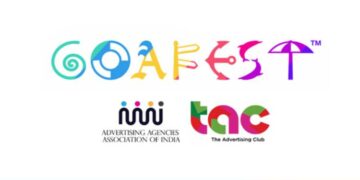China amends PRC Advertising Law advertising law for the first time in two decades, introducing a more detailed regulatory framework that covers what advertisers can and cannot do, particularly those targeting the country’s 650 million internet users.
The key elements of the new rules of the amended PRC Advertising Law cover misleading advertising, advertising to children – kids under the age of 10 cannot be used to promote products (but can feature in ads) – email spamming, mail drops and pop-up ads.
Internet users must be able to close a pop-up ad with a single click, an eDM must contain the users real identity, including their contact details, and any other form of electronic direct marketing is prohibited unless the recipient has consented.
China amends PRC advertising law to make service providers responsible for the content they run on their networks, and celebrity endorsers liable for breaches of the rules, for instance if they make unfair or misleading claims about the product they’re endorsing.
Breaches of the law may result in fines of up to RMB1 million (US$161,000) and the advertiser’s business licence being cancelled.
The more detailed of the rules focus on advertising to children. Ads are not allowed in school, buses and text books. Children under 10 years old cannot appear in ads if they are seen to be promoting the product, which is defined as “recommending or providing testimony in support of products or services”.
Ads targeting children under 14 must not contain content which persuades their parents to buy the brand advertised.
Law firm DLA Piper, which has written a commentary piece on China’s new rules for advertisers, suggests that it is unclear what it meant by “content which persuades” but says it hopes this will be made clear when implementing regulations are published later in the year.
Also vague is the definition of misleading advertising, DLA Piper has suggested. It is defined as: “advertisements that provide incorrect information in relation to the performance, function, origin, uses, quality, size, composition, prices, manufacturers and expiration dates of products will be considered misleading,” the firm writes.
The amended law was approved on 24 April, and advertisers have four months before the rules come into force on 1 September.
DLA Piper commented on the changes: “The existing law is very short and has been widely criticized for being too vague. The amended law is almost double in length and is much more prescriptive, with one of the key aims being to reduce the number of grey areas that exist in the advertising space in China, making compliance and indeed the imposition of sanctions for non-compliance, much more straightforward.”
The existing principle for China’s PRC advertising law are as follows:
- Be true and must not contain false and misleading information which cheats or misleads consumers
- Adhere to the principles of fairness and trustworthiness
- Not be detrimental to the physical and mental health of the people of China
- Not impair the physical and mental health of minors or disabled people
- Be in compliance with social morality and professional ethics and safeguard the dignity and interests of the state
- Only contain data, statistics and survey findings that are factually correct with the source being indicated in the advertisement
- Not discredit the products or services of third parties






















